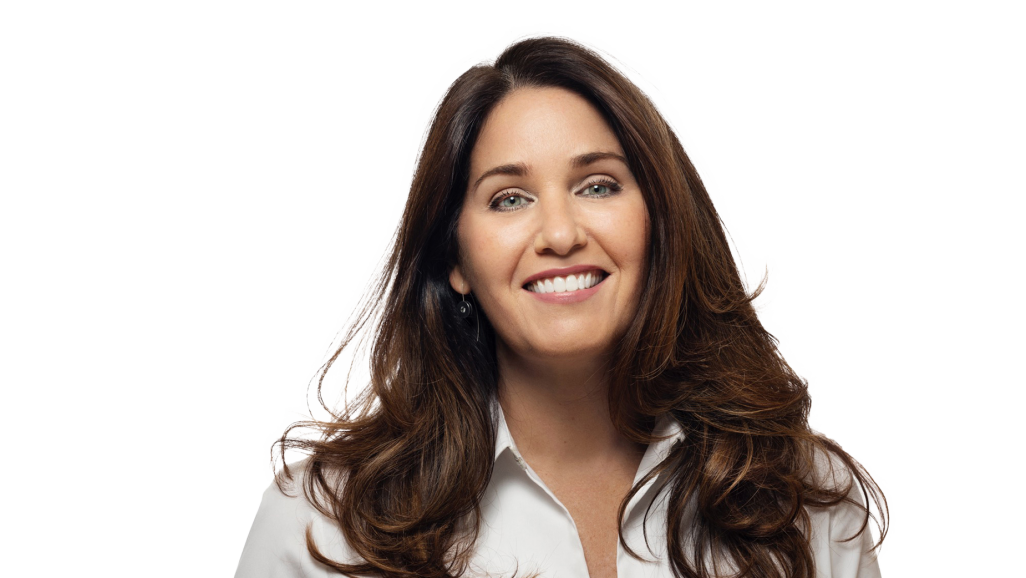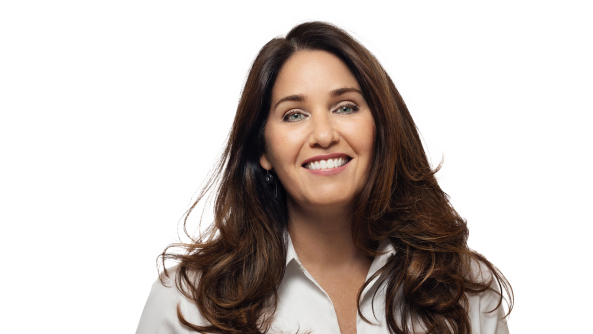
interview
Collette Douaihy
Global Chief Creative Officer
Dentsu health
Awards category:
Pharma
Arguably, the biggest misconception around pharma marketing is that there is little space for creativity in this field. However, we seem to have been defying that stereotype for quite some time now. What are your thoughts on this?
I have been working in this industry for 24 years. I have witnessed this industry blossom over the years, over more than two decades. And yes, it was a very regulated market. Creatives followed the instructions of marketers, very strictly controlled.
And it was difficult to create something new and different that would attract the attention of the audience. In the last 10 years, there has been an increase in courageous pharma companies that adopt what big consumer-centric brands do, which is innovation, technology, and putting the consumer at the heart of the experiences.
You need to be more creative in pharma than ever before. Creativity is the core of everything we do in pharma now. And it's a very different industry than it was 24 years ago. You see more creatives wanting to enter this industry because it has the potential to change lives.
Is it hard now to attract new people into the industry? Does it look attractive for marketers and creators from other areas of marketing?
It really does. In all the categories at Cannes Lions, you will find that kind of work in other areas besides health and wellness, besides just pharma.
Automotive has gotten into the game. And I always use an oldie, but a goodie that I love: Nike started as a shoe company, right? A sneaker company — they were all about their sneakers and what they offered the consumer, but then Nike got into the health industry. Now there is a whole lot of wearables and apps. The sneakers are just a part of that journey to your best self, to your health. And now there are big companies. So we can definitely attract talent.
How should we measure the success in pharma marketing? Helping patients live better lives, fighting against misconceptions in the health industry — but what is that destination on this marketing journey, the key metric of success?
That’s interesting. If the industry was focused only on the benefits of a drug — then you would market a drug, you’d advertise what that drug does, people would feel the need to start taking it. But it is so much more than that.
We see innovation in the pharma industry — not just in marketing, but in how drugs are getting to market, in clinical trials. Rare disease is on the rise.
It's no longer just about the drug. You must think about patient’s experience. The drug is only one part of that journey to health and wellness.
Let’s talk about Scrolling Therapy for half a second — last year's Cannes Lions Grand Prix winner, an incredible piece of technology. It had nothing to do with the physical drugs that some people take for Parkinson's, but it was literally an app that helped with a therapy for a facial masking allowing patients not only to do their exercises with dignity and grace, but also to enjoy those moments while they were scrolling through their social feeds on Instagram or Facebook.
You have to put patient first. Medications will always be a part of a therapy, but you have to look at that patient — that holistic patient, what their journey looks like, what are the obstacles that are holding them back, or what are the opportunities to make their experience better. It's not just about the pill. It's about the plus of what people are experiencing, how they're doing it. And that’s when you begin to see cardiovascular brands providing tips on diet and exercising, giving people recipes and wearable tech and things like apps to keep them motivated. That's the bigger battle. And when you surround your patients or your consumers with all those great pieces of technology or motivational innovation — that will carry them much further than just a pill.
What aspect of the Cannes Lions Festival are you most looking forward to both professionally and personally this year?
It’s my first time being a president. So, I would say for me it’s walking out on that stage. I will have to pause and just take in that moment because this is one of those things that may not happen again as jury president.
As a jury president this year, I will keep saying: “Is it Cannes worthy?”. I've been lucky enough to be in that jury room several times at Cannes and other shows as well. And you have to look for those moments of helping the jury understand what a profound impact it can have on an audience; understand that we're living in a different world now, that we have to be inclusive.
I love the jury room. Sometimes I don't even need to participate in all the festivities; it gives you that front row seat to the most incredible talent in our industry. There is a certain magic that unfolds in the jury room when you bring in all these creatives from around the world with different perspectives.





How should we measure the success in pharma marketing? Helping patients live better lives, fighting against misconceptions in the health industry — but what is that destination on this marketing journey, the key metric of success?
That’s interesting. If the industry was focused only on the benefits of a drug — then you would market a drug, you’d advertise what that drug does, people would feel the need to start taking it. But it is so much more than that.
We see innovation in the pharma industry — not just in marketing, but in how drugs are getting to market, in clinical trials. Rare disease is on the rise.
It's no longer just about the drug. You must think about patient’s experience. The drug is only one part of that journey to health and wellness.
Let’s talk about Scrolling Therapy for half a second — last year's Cannes Lions Grand Prix winner, an incredible piece of technology. It had nothing to do with the physical drugs that some people take for Parkinson's, but it was literally an app that helped with a therapy for a facial masking allowing patients not only to do their exercises with dignity and grace, but also to enjoy those moments while they were scrolling through their social feeds on Instagram or Facebook.
You have to put patient first. Medications will always be a part of a therapy, but you have to look at that patient — that holistic patient, what their journey looks like, what are the obstacles that are holding them back, or what are the opportunities to make their experience better. It's not just about the pill. It's about the plus of what people are experiencing, how they're doing it. And that’s when you begin to see cardiovascular brands providing tips on diet and exercising, giving people recipes and wearable tech and things like apps to keep them motivated. That's the bigger battle. And when you surround your patients or your consumers with all those great pieces of technology or motivational innovation — that will carry them much further than just a pill.
Arguably, the biggest misconception around pharma marketing is that there is little space for creativity in this field. However, we seem to have been defying that stereotype for quite some time now. What are your thoughts on this?
I have been working in this industry for 24 years. I have witnessed this industry blossom over the years, over more than two decades. And yes, it was a very regulated market. Creatives followed the instructions of marketers, very strictly controlled.
And it was difficult to create something new and different that would attract the attention of the audience. In the last 10 years, there has been an increase in courageous pharma companies that adopt what big consumer-centric brands do, which is innovation, technology, and putting the consumer at the heart of the experiences.
You need to be more creative in pharma than ever before. Creativity is the core of everything we do in pharma now. And it's a very different industry than it was 24 years ago. You see more creatives wanting to enter this industry because it has the potential to change lives.
Is it hard now to attract new people into the industry? Does it look attractive for marketers and creators from other areas of marketing?
It really does. In all the categories at Cannes Lions, you will find that kind of work in other areas besides health and wellness, besides just pharma.
Automotive has gotten into the game. And I always use an oldie, but a goodie that I love: Nike started as a shoe company, right? A sneaker company — they were all about their sneakers and what they offered the consumer, but then Nike got into the health industry. Now there is a whole lot of wearables and apps. The sneakers are just a part of that journey to your best self, to your health. And now there are big companies. So we can definitely attract talent.
What aspect of the Cannes Lions Festival are you most looking forward to both professionally and personally this year?
It’s my first time being a president. So, I would say for me it’s walking out on that stage. I will have to pause and just take in that moment because this is one of those things that may not happen again as jury president.
As a jury president this year, I will keep saying: “Is it Cannes worthy?”. I've been lucky enough to be in that jury room several times at Cannes and other shows as well. And you have to look for those moments of helping the jury understand what a profound impact it can have on an audience; understand that we're living in a different world now, that we have to be inclusive.
I love the jury room. Sometimes I don't even need to participate in all the festivities; it gives you that front row seat to the most incredible talent in our industry. There is a certain magic that unfolds in the jury room when you bring in all these creatives from around the world with different perspectives.
Awards category:
Pharma
Global Chief Creative Officer
Dentsu health
Collette Douaihy
interview

